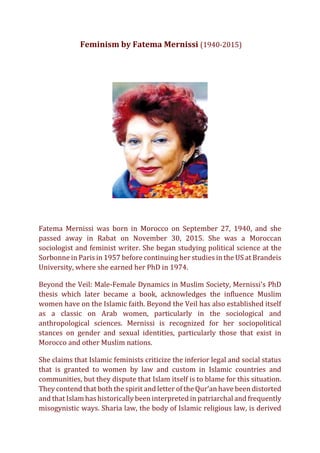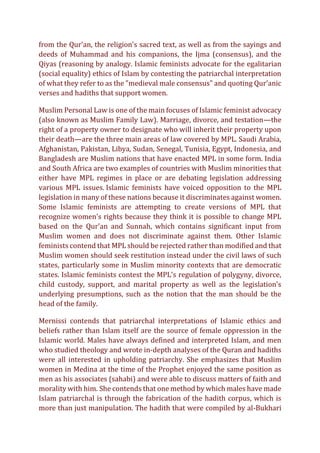Fatema Mernissi (1940-2015) was a Moroccan sociologist and feminist who focused on the rights of women in the Islamic world, asserting that patriarchal interpretations of Islam, rather than Islam itself, contribute to women's oppression. Her notable works include 'Beyond the Veil' and 'The Veil and the Male Elite,' where she critiques the discrimination in Muslim personal laws and challenges ethnocentric views on Muslim women in Western feminism. Mernissi's contributions to Islamic feminism emphasize the historical political roles of women in Islam and advocate for the re-evaluation of gender roles to promote women's empowerment.




